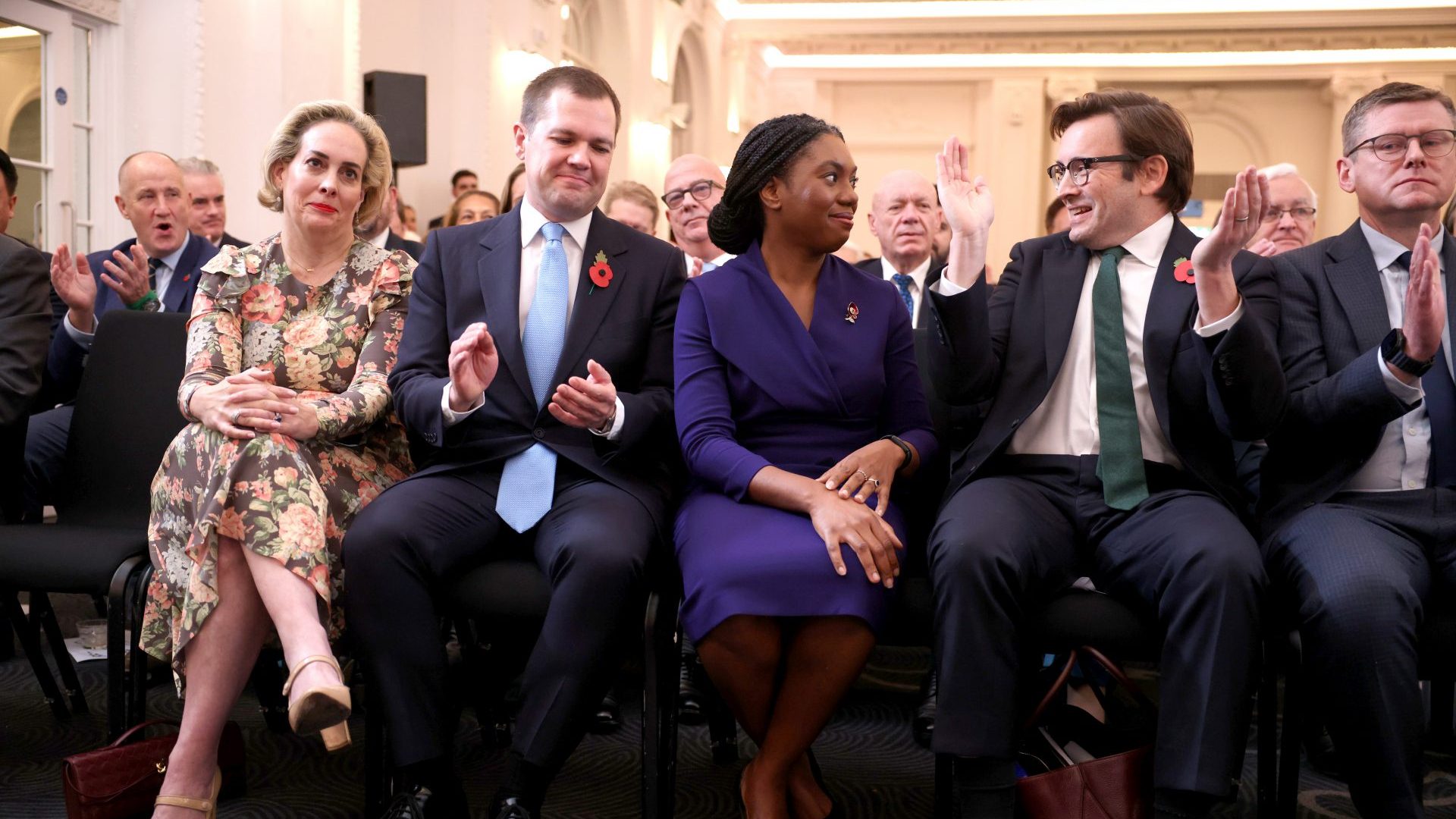And so, 121 days after losing the general election, the Conservative Party finally has a new leader in place.
In Kemi Badenoch, the Conservatives have their fourth female leader and second leader of colour (Badenoch is also the first black leader of a major UK party), while Labour continues never to have been led by anyone who is not a white man.
As to what Badenoch will actually do as leader, she has left herself with something of a blank slate. She offered up virtually nothing in the way of policy during the contest, thus making herself the de facto ‘moderate’ of the final two candidates.
Robert Jenrick, once known as one of the party’s relative centrists, had tacked so hard to the right that he had threatened to expel any MP who did not support his effort to leave the European Convention on Human Rights (undermining both the Brexit deal and the Northern Ireland Peace Process) – which prompted appalled former allies to rally behind Badenoch.
Despite endless media and Westminster rumours that the contest might be closer than expected, it wasn’t: Badenoch won comfortably, by 56% to 44%. Despite the drawn-out nature of the contest, it has gone the way everyone believed it would once the final two were announced.
In Badenoch, the Conservatives have an unknown quantity with a habit of putting her foot in her mouth. Six years ago, Badenoch bafflingly (and needlessly) admitted to having hacked the website of Labour politician Harriet Harman a decade before. This was an admission of a criminal offence, carried out at the age of 28, not just some youthful indiscretion.
A more frequent verbal tic of Badenoch is to angrily deny having said a particular thing, or to claim the comments were taken out of context, when there is audio or even video publicly available showing her to have said the thing in question.
This is because Badenoch has a habit of thinking out loud, often considering policies that might be far more radical than the electorate is ready to hear. In opposition, politicians tend to escape scrutiny – unless they are the leader of their party. Badenoch will certainly have to adapt her style if she is to break through with a consistent message.
The challenge for Badenoch is that the shambolic nature of the contest that elected her might say more about the party she is inheriting than her victory itself does. The announcement has come just three days after a seismic Labour budget, the ramifications of which are still dominating domestic politics. It also comes just three days before the US election, which is obviously attracting huge international attention.
What should have been the opportunity for the Conservative Party’s relaunch after its worst election defeat in history is instead a quick also-run news story between more significant events. Tomorrow’s political interview programmes will be dominated by Rachel Reeves, not Kemi Badenoch. Such is life in opposition.
Even more trickily, Badenoch hardly comes in with a storming mandate. The final contest was Badenoch versus Jenrick because James Cleverly’s supporters couldn’t get their act together and decide which of the two they wanted Cleverly to face off against in the final two. Had five of her MPs got their act together, she might never have made the members’ ballot in the first place.
That shaky Westminster mandate is supported by the lowest ever turnout among members in a Conservative leadership election. On the face of it, a 72.8% turnout doesn’t look that bad, but being able to vote for the leader is more-or-less the entire purpose of being a Tory member.
As it stands, 53,800 or so of those members voted for Badenoch, 41,400 voted for Jenrick, and 35,800 didn’t bother returning their ballot. Impressively in a contest with two candidates, 45 members managed to invalidate their ballot by voting for both of them.
Badenoch has been handed a stumbling start by a vastly weakened party: she has just 120 other Conservative MPs behind her, and she knows the majority of those people wanted someone else to be leader. Labour’s majority is bigger than her Westminster contingent.
Despite that, Conservative expectations are detached from reality: excitable MPs and media boosters talk as if Keir Starmer’s government is likely to collapse within two years, they look at current polls which seem to help the party, and even at conference they spoke as if returning to power at the next election is more likely than not.
Badenoch has to get the party ready for government, even as many of her colleagues on some level believe it already is. She has to sell the party on a new vision of Conservatism – one she hasn’t told them much about before they’ve put her in office.
And she surely must know that the Tory party is addicted to its own drama, and has ousted leader after leader in recent years: some staffers and members openly spoke of voting for the candidate they thought would flame out fastest, in the hope they could replace them before the election.
The clash of her own style, the party’s dire finances and political position, and her colleagues’ inflated expectations mean she is in for a tough course indeed.










